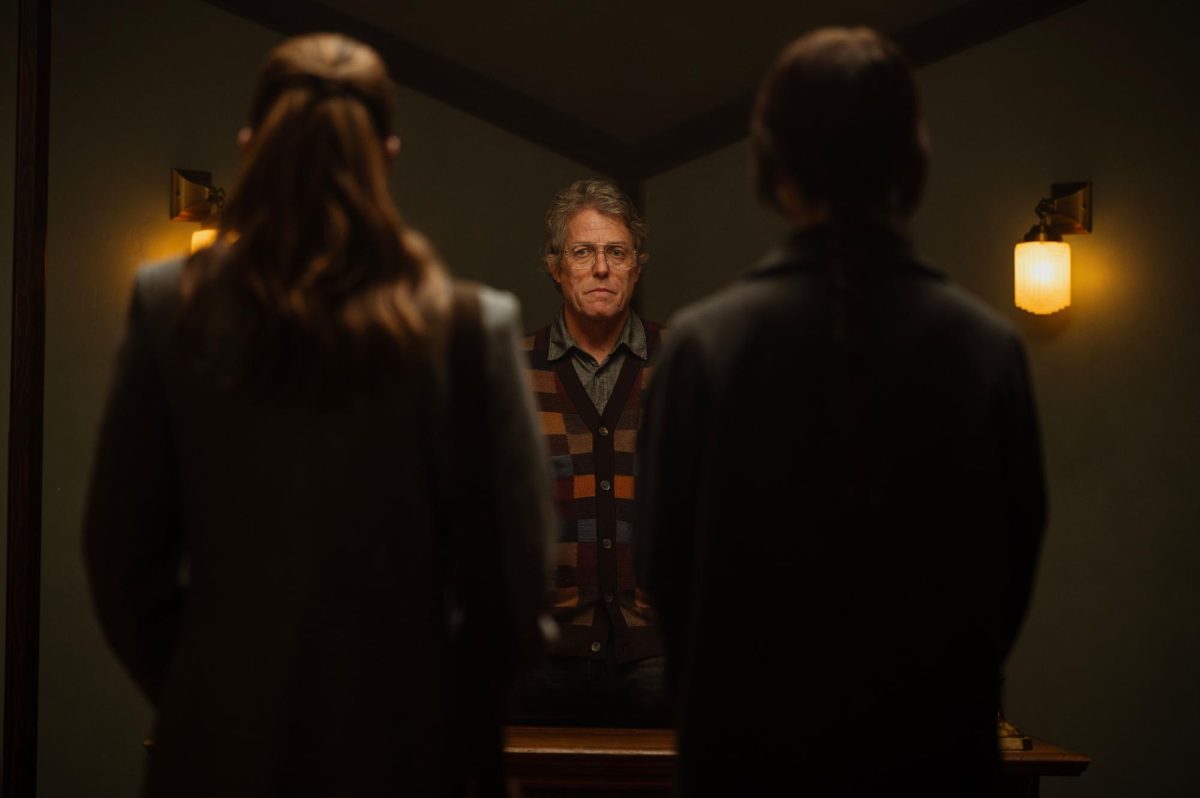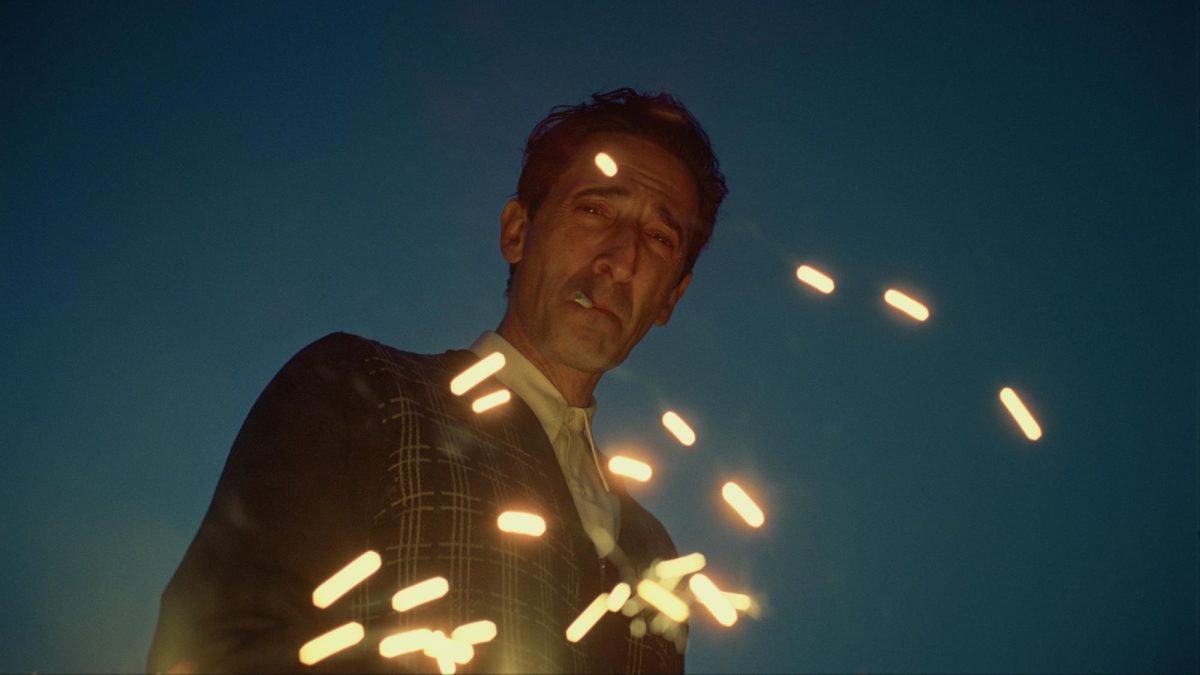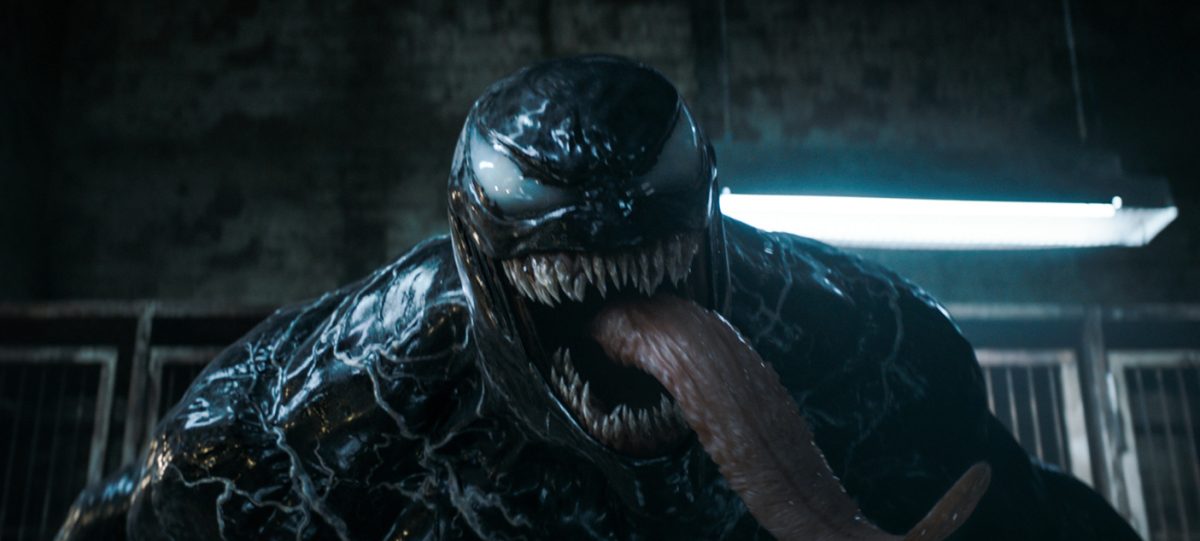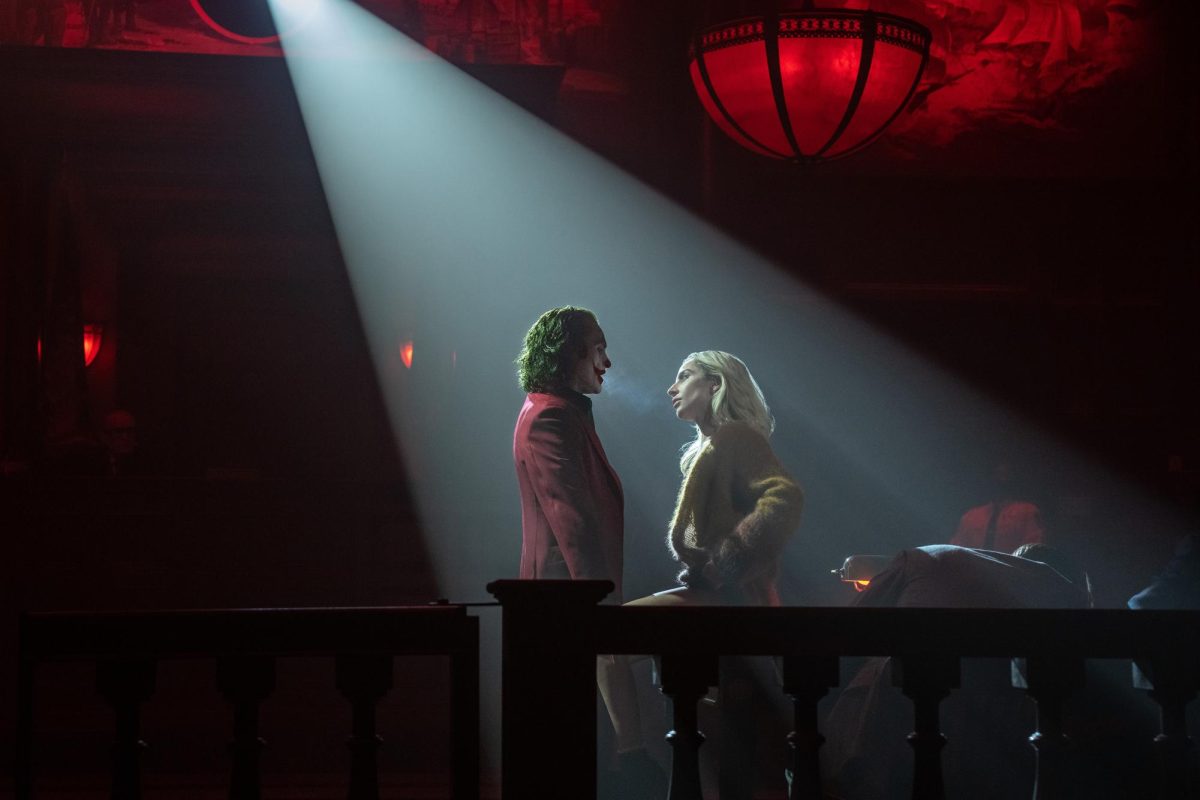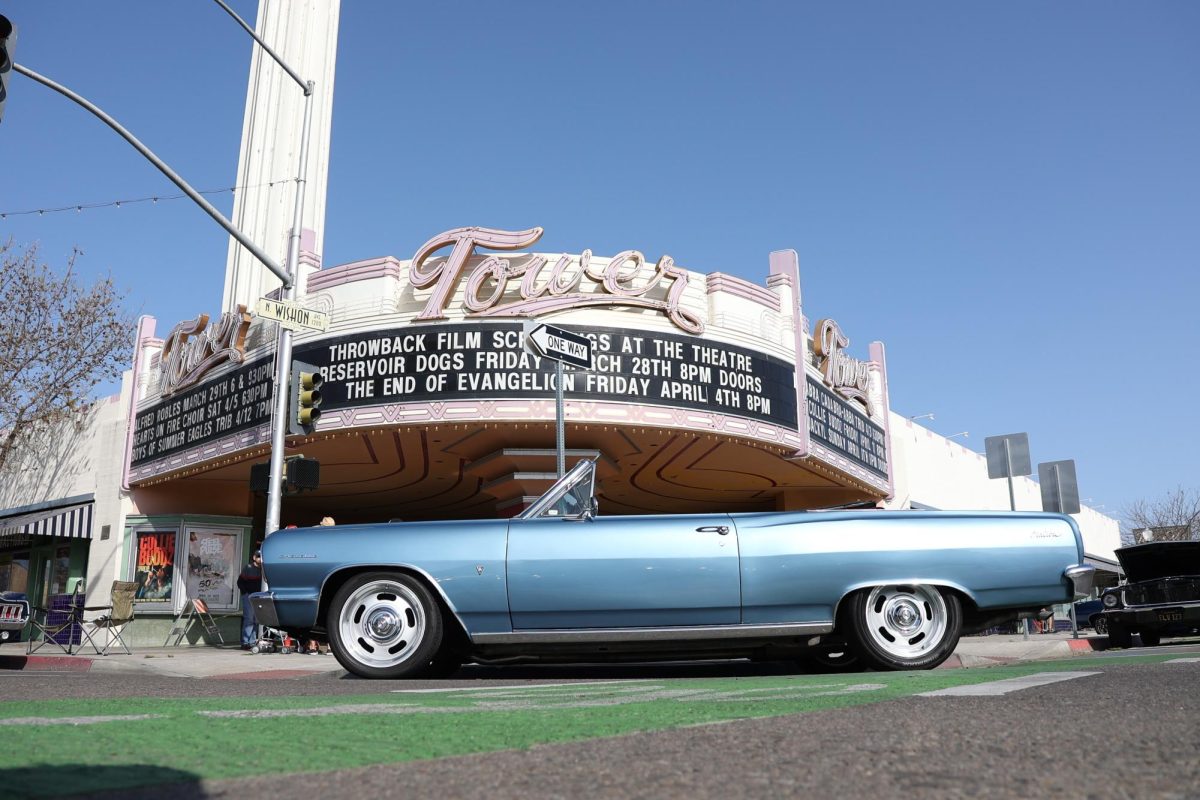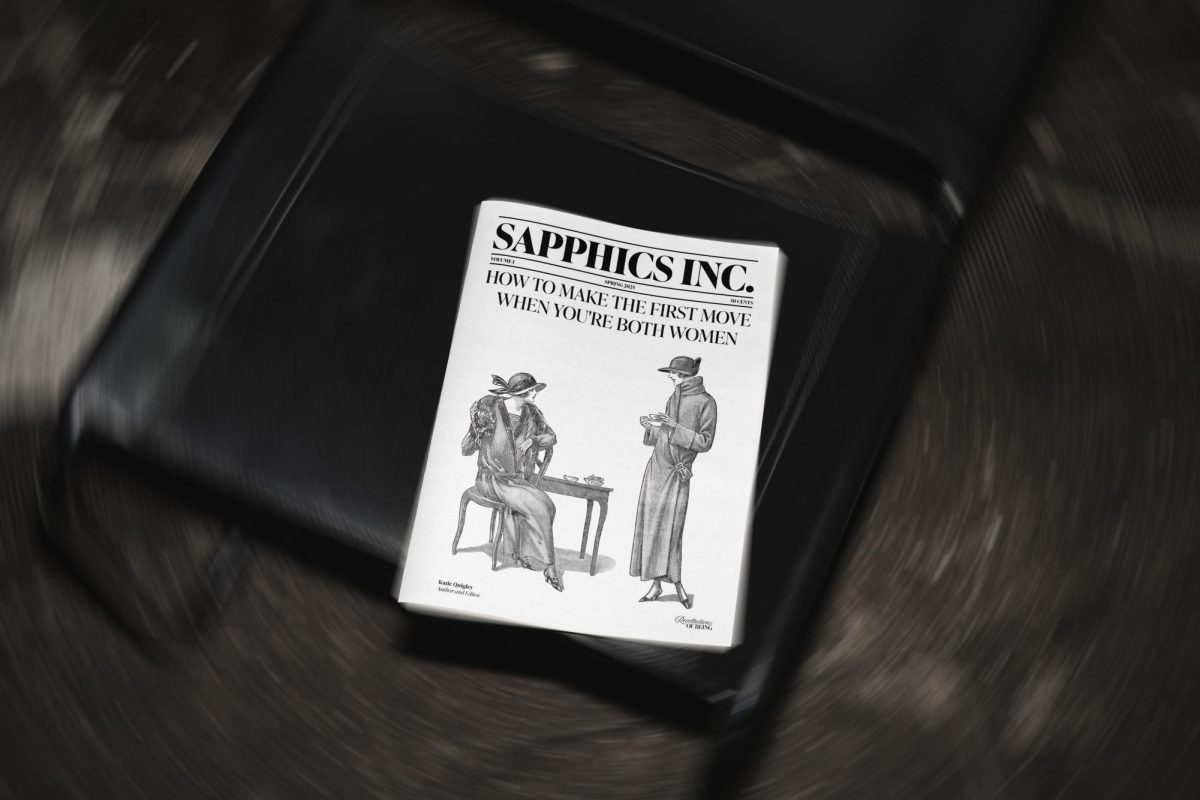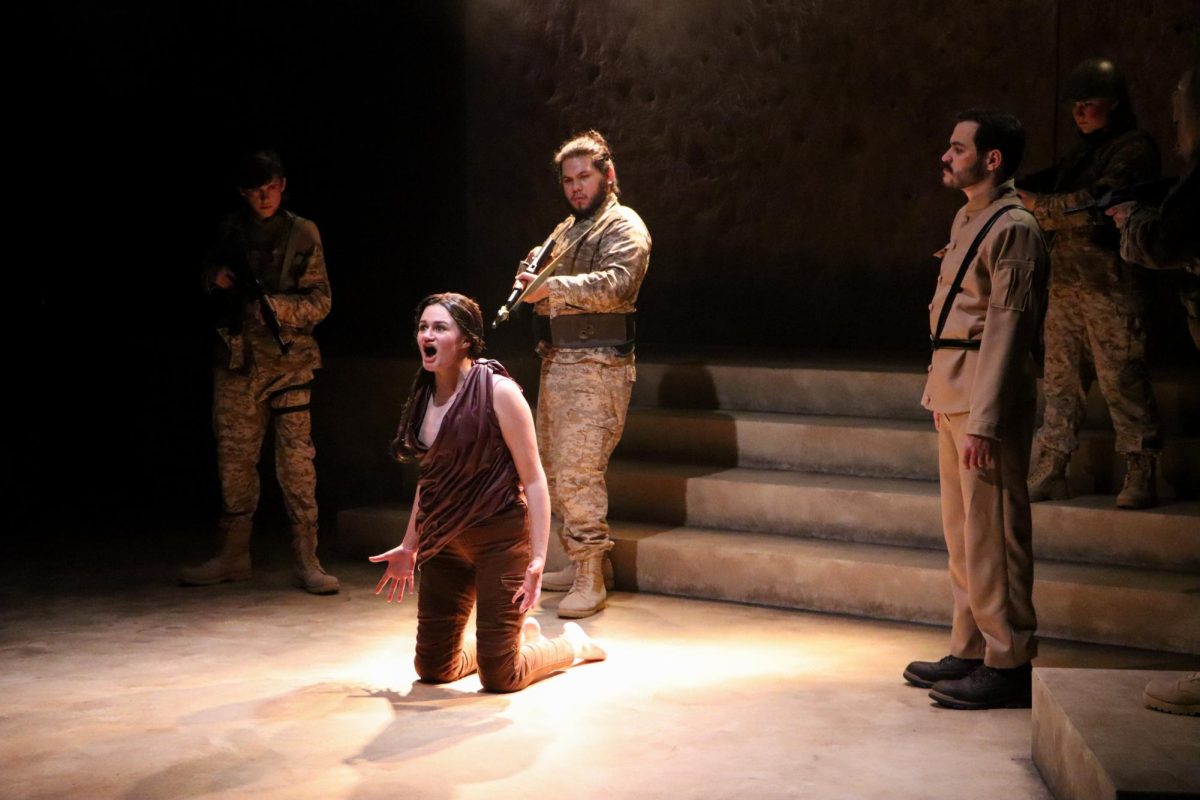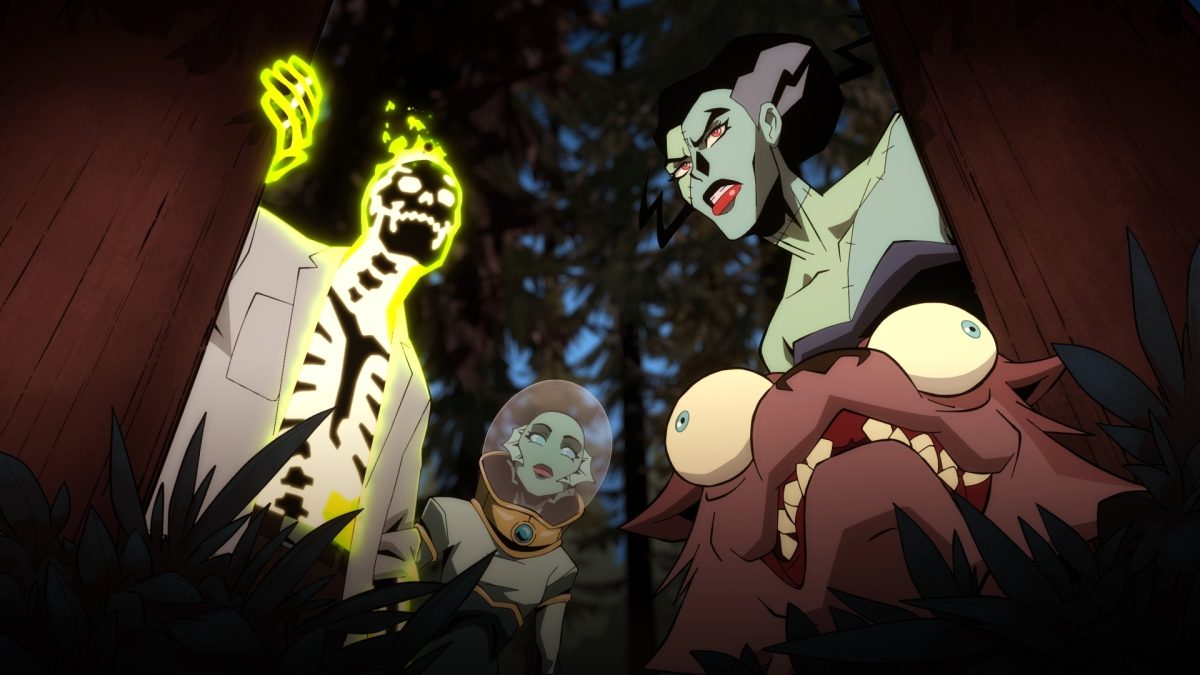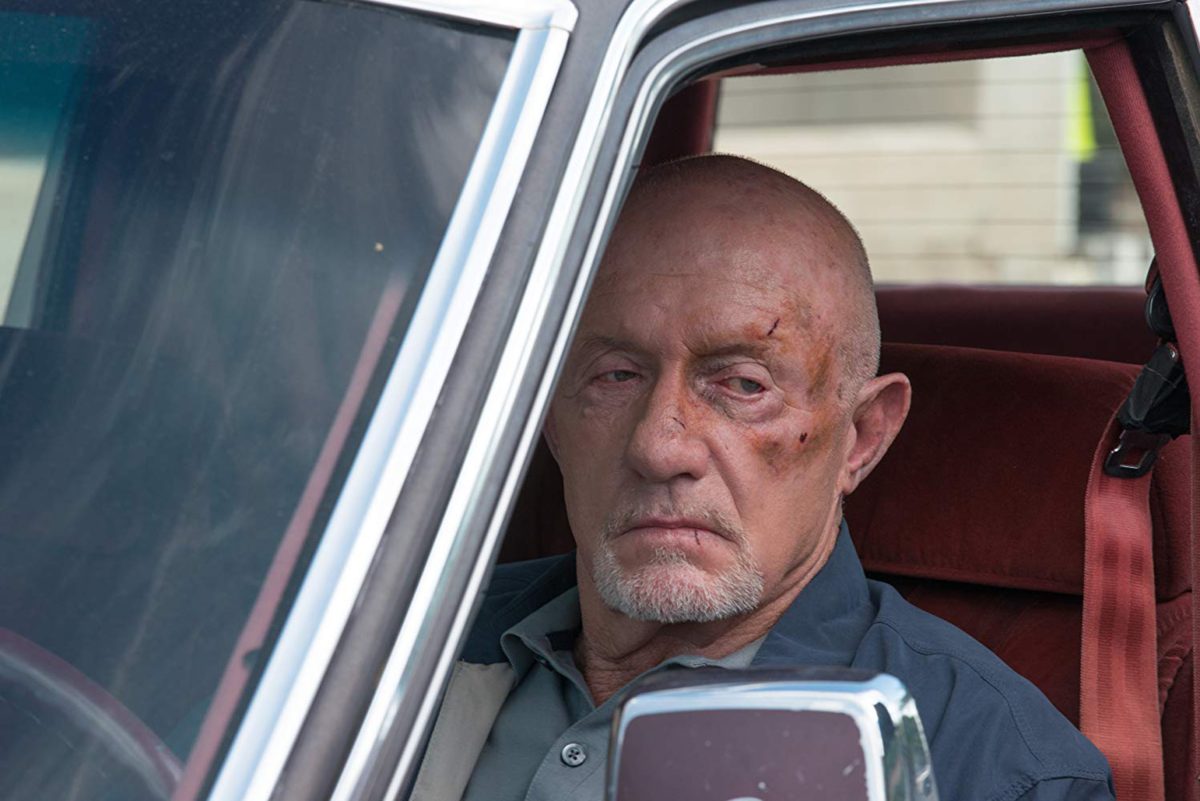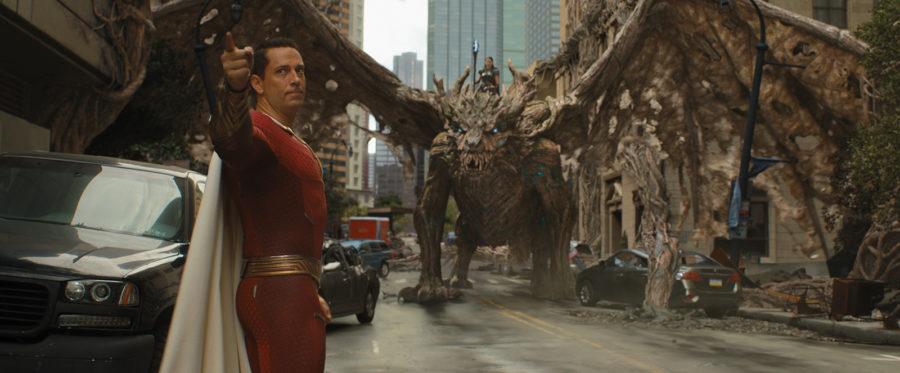A24 adds another beautifully written theological metaphor to their filmography that rivals the likes of “Midsommar,” “Hereditary,” “Lamb” and “The Witch.”
“Heretic” explores religious faith through the eyes of two sisters, played by Sophia Thatcher and Chloe East. Determined to complete their mission for the Church of Jesus Christ of Latter-day Saints, the sisters run into a charming, yet eerily educated, potential convert played by Golden Globe winner Hugh Grant.
From the moment the production company’s signature “A24 Presents” flashes on screen, you are instantly enthralled in the systematic world building and elegant cinematography that A24 and its directors are known for.
Thatcher plays the cautious, strong-willed Sister Barnes that seeks to coach the more naive and enthusiastic role of East’s Sister Paxton. Upon meeting Mr. Reed begins a vicious dance between trust and mistrust that Grant so effortlessly strings you along for.
Reed instantly evokes feelings of a heightened sense of awareness upon entering the eerie recreation of a church that is his home. His charm, poise and intelligence steer you away from obvious lies that have you questioning the reality of the situation. The intensity of his query and the brevity of his questions bounce your subconscious between realities.
The film challenges and advocates for belief in a way that translates so well to the thriller genre. In one moment you’re enamored with a philosophical discussion on the basis of faith, and in another you’re gripping your seat with horrific anticipation.
Trapped in the meticulously crafted household of Mr. Reed, the sisters soon realize that he is much more than someone curious about the Mormon faith. They become study subjects of a theological debate of a manipulative madman, who refuses to let them leave without progressing through the downward maze of his home.
At first glance one might assume that this movie is a commentary on the fallacies of the Mormon religion, but it dives deeper into faith as a whole, even alluding to descriptions of Dante’s Inferno, the classic poem from Dante Alighieri’s Divine Comedy which deals with the struggle of belief.
Act three is a bit lazy compared to the artistic nature of the first two, however. Possibly restricted by time, the third act comes off as rushed and predictable, introducing characters that were otherwise useless to the arcs that were already in motion.
The film seemed to switch from an intelligent commentary on the struggles of faith to a more mainstream tale of prognostic, cult-like worship which seemed to dull the momentum.
Very much a location piece in the form of the antagonist’s house, the film does a good job in making you feel trapped along with our protagonists. The creeks, footsteps, and little details of the sound design and set pieces elicit those old eerie feelings of grandparents’ house.
Overall the film presents beautifully written ethical dilemmas translated into a thrilling horrific format that speaks to some of life’s most important questions in a suspenseful way.
Fans of that ’70s Show will see a familiar face in Topher Grace as he plays a small dramatic role in the film. It gets an overall rating of 8.9/10.




